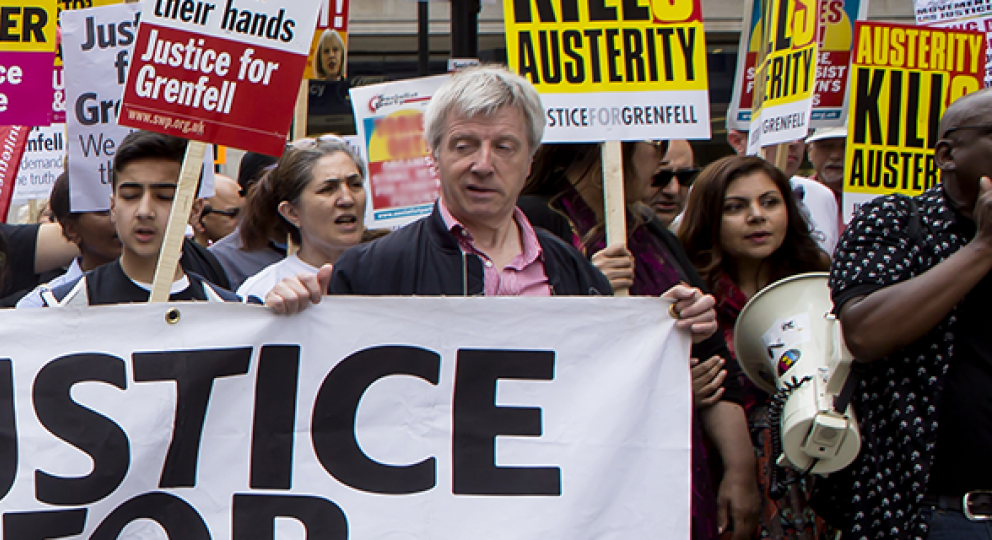
by Elizabeth Prochaska
Published: 20 Dec 2017
Last week we launched our project, Following Grenfell, looking at the human rights and equality dimensions of the events surrounding the Grenfell Tower fire. We have had a great response to our project – hearing from members of the Grenfell community, lawyers, housing experts and many in the voluntary sector, who have expressed their relief that the human rights and equality issues will not be overlooked.
I have been asked why we are not using our own statutory inquiry powers under the Equality Act 2006. The answer is that we are confident that we can explore the issues without resorting to our formal powers. The public inquiry will be collecting evidence and hearing from witnesses and experts. We will analyse and comment on this evidence as it emerges, make public submissions of our own and invite others with expertise and experience to contribute to our work.
Human rights principles should shape the response to the tragedy
Our project seeks to complement the Grenfell Tower Inquiry, not to duplicate or undermine its work. If during the course of the project we decide that we need to use our formal powers, we will do so.
I am passionate about this work because I believe that human rights principles should shape the response to the tragedy. Human rights are based on the values of dignity, equality and respect and they should be at the heart of the response to Grenfell Tower. When the state holds inquiries and demands answers about the causes of a disaster, it is doing so because people’s lives matter.
The Grenfell Tower Public Inquiry has to respect the right to life and the obligation to investigate deaths in accordance with human rights principles, including accountability, independence, promptness and participation of victims. We want to support the Inquiry and explore the human rights and equality issues ourselves so that we can contribute to learning the lessons from the fire and ensuring something like this never happens again.
Fundamentally, we want to understand:
- what can we expect from our government and public authorities?
- what must the state do to keep people safe and to respond when they are in danger?
We believe that human rights help us answer those questions and we are convinced that they should be at the heart of any official inquiry into what happened at Grenfell.
We support the call to appoint panel members with different professional experience and backgrounds
The inquiry recently held two days of procedural hearings focusing on the participation of the survivors and bereaved families. Participation of victims in any inquiry is essential, as a matter of humanity and respect, and in order to ensure that the inquiry is effective and legitimate. In legal terms, if victims are unable to participate, it threatens the state’s ability to show that it is meeting its responsibility to investigate deaths under Article 2 of the European Convention on Human Rights.
Following these hearings, we have published our first public submission (Word) on the right to life, the inquiry’s obligations under the Equality Act 2010 and the participation of the survivors and bereaved. We have set out the practical steps we think the inquiry must consider to ensure that they can play a full part in the process. Many of the survivors and bereaved have called for the Prime Minister to appoint panel members with different professional experience and backgrounds to increase public confidence in the inquiry. We support that call. We do not question the ability of the chair and the lawyers involved in the Inquiry, but knowledge and experience of the affected communities, and the way public authorities serve those communities, are critically important if the inquiry is to maintain public confidence and do its work effectively.
If you would like to contribute to our Following Grenfell project please email the Grenfell team.
Find out more
Elizabeth Prochaska is the Commission's legal director. Find out more about our Following Grenfell project.




